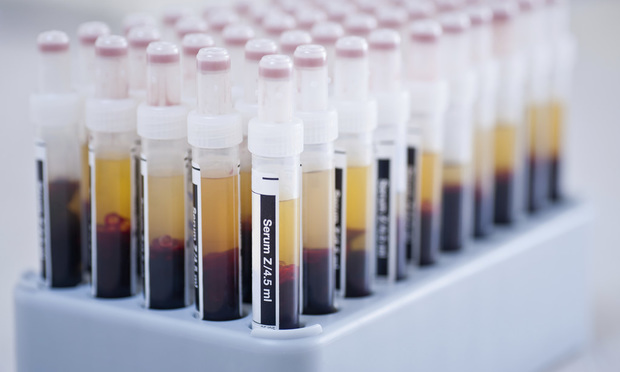A drunken driving suspect’s constitutional rights were not violated by a blood draw where police officers believed no warrant was needed and were unaware that warrants could be obtained by telephone, a divided Supreme Court ruled.
The majority ruled on Tuesday in State v. Zalcberg, 5-2 decision, that a lack of training for police about telephonic warrants—in the context of a serious road accident and a changing landscape for such warrants at the time—could form an exigency that renders the warrantless blood sampling compliant with the Fourth Amendment.


 Blood test samples
Blood test samples





